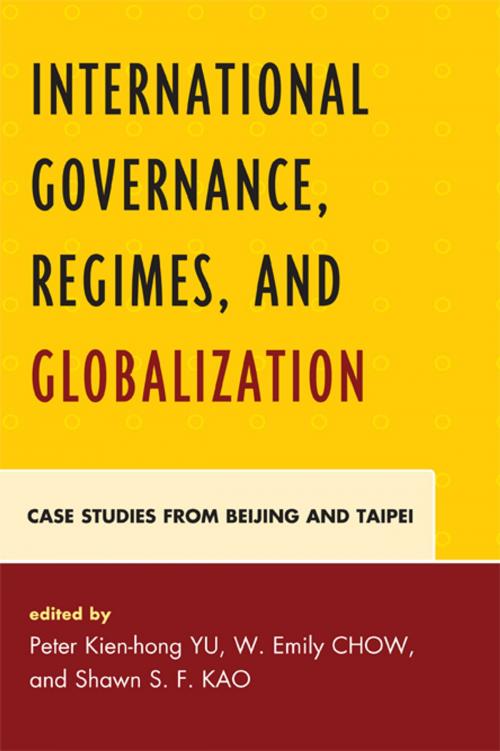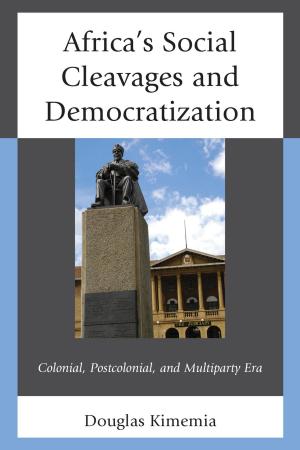International Governance, Regimes, and Globalization
Case Studies from Beijing and Taipei
Nonfiction, Social & Cultural Studies, Political Science, International, International Relations, Government| Author: | W Emily Chow, Chiang Chun-chi, Rosita Dellios, James C. Hsiung, Shawn S. F. Kao, Richard W. Mansbach, Samuel S. Zhao | ISBN: | 9780739143216 |
| Publisher: | Lexington Books | Publication: | April 27, 2010 |
| Imprint: | Lexington Books | Language: | English |
| Author: | W Emily Chow, Chiang Chun-chi, Rosita Dellios, James C. Hsiung, Shawn S. F. Kao, Richard W. Mansbach, Samuel S. Zhao |
| ISBN: | 9780739143216 |
| Publisher: | Lexington Books |
| Publication: | April 27, 2010 |
| Imprint: | Lexington Books |
| Language: | English |
In the this collection, International Governance, Regimes, and Globalization, the writers explore international relations and globalization by using specific examples from Beijing and Taipei. In December 1949, when China was politically divided the People's Republic of China (PRC) central government was in control of most resources, tangible and intangible. For that reason, our unit of analysis has to be the state, meaning a government or a politically organized body. With the rise of civil society at both national and international levels, applying the international/global governance theory should be closer to reality, because we have to look at both the state and non-state-sponsored dimensions, which are more complex and complicated. Indeed, international/global governance could become a new school of thought and will continue to expand as academics explore. For example, neo-liberalism primarily focuses on market and contract. When people buy and sell something, they are in a market. In other words, politics is the superstructure of economics or as Karl Marx said what prevails in economy will ultimately prevail in politics. In a sense, subscribers to this school of thought are Marxian. However, the study of international/global governance embraces the non-state sponsored dimension. Hence, it is broader than that of the neo-liberalism school of thought.
In the this collection, International Governance, Regimes, and Globalization, the writers explore international relations and globalization by using specific examples from Beijing and Taipei. In December 1949, when China was politically divided the People's Republic of China (PRC) central government was in control of most resources, tangible and intangible. For that reason, our unit of analysis has to be the state, meaning a government or a politically organized body. With the rise of civil society at both national and international levels, applying the international/global governance theory should be closer to reality, because we have to look at both the state and non-state-sponsored dimensions, which are more complex and complicated. Indeed, international/global governance could become a new school of thought and will continue to expand as academics explore. For example, neo-liberalism primarily focuses on market and contract. When people buy and sell something, they are in a market. In other words, politics is the superstructure of economics or as Karl Marx said what prevails in economy will ultimately prevail in politics. In a sense, subscribers to this school of thought are Marxian. However, the study of international/global governance embraces the non-state sponsored dimension. Hence, it is broader than that of the neo-liberalism school of thought.















